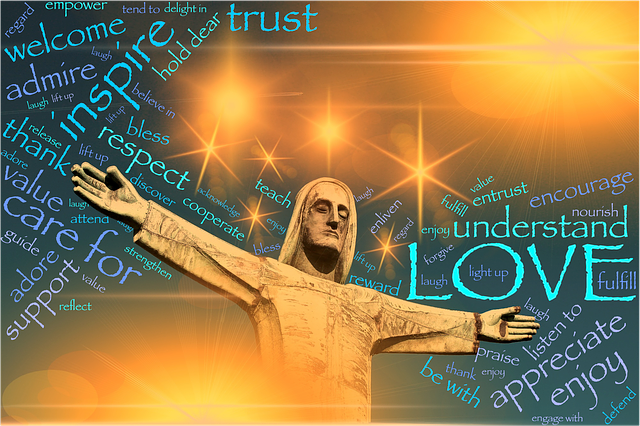Table of Contents

Introduction: Why Forgiveness is a Catalyst for Personal Transformation and Well-Being
Importance of Forgiveness is a profound act of human kindness that has the power to heal, transform, and uplift. It is an essential component of emotional intelligence and a cornerstone of mental health. In a world where anger, resentment, and bitterness are often the normative responses to pain and hurt, the deliberate and conscious decision to forgive is revolutionary. Forgiveness is not about forgetting the past or condoning harmful actions; rather, it is about freeing yourself from the shackles of negative emotions and choosing to move forward with compassion and understanding.
The act of forgiveness has been extensively researched and documented for its incredible impact on the human psyche. Scientific studies have shown that individuals who practice forgiveness are generally happier, enjoy better health, and experience more fulfilling relationships. In this article, we will explore the depths of forgiveness and the remarkable ways in which it can reshape your life. Through a deep dive into the psychological and physiological benefits, practical applications, and inspiring real-life examples, you will discover the transformative power of forgiveness.
Understanding Importance of Forgiveness
Forgiveness is a complex and multifaceted concept that is often misunderstood. It is crucial to clarify what forgiveness entails and what it does not. Forgiveness is not about denying the reality of the hurt or injustice experienced, nor is it about forgetting the past. It is also not about reconciliation, which is a separate process that may or may not occur after forgiveness.
At its core, forgiveness is the act of making a conscious choice to release anger, resentment, and the desire for revenge towards someone who has wronged you. It involves understanding that holding onto these negative emotions only causes harm to yourself, and that the only way to truly move on is to let them go. This does not imply that you are excusing the behavior or saying that it was okay; instead, you are acknowledging the pain, choosing to learn from it, and deciding to no longer allow it to define you or dictate your future emotions and actions.


The Science Behind Forgiveness and Its Effect on Stress
One of the most immediate and profound effects of forgiveness is its impact on stress and anxiety levels. Chronic anger and resentment are known to elevate cortisol levels, leading to a persistent state of stress that can have detrimental effects on both mental and physical health. The Stanford Forgiveness Project, a long-term research initiative, has revealed that those who actively practice forgiveness experience significant reductions in stress, anger, and depression.
When we hold onto grievances, our bodies remain in a constant state of fight or flight, which can manifest in various health issues, such as increased blood pressure, weakened immune systems, and impaired sleep. Conversely, forgiveness activates the parasympathetic nervous system, which is responsible for rest and relaxation. This physiological shift promotes a sense of calm, reduces stress, and allows the body to heal.
Forgiveness as a Relationship Builder
Healthy relationships are the foundation of a fulfilling life, and forgiveness is essential for maintaining and strengthening these connections. Whether it’s a romantic partner, a friend, or a family member, the ability to forgive and move on from conflict is vital for relationship longevity. By forgiving, we create an environment of trust, empathy, and understanding that can lead to more profound connections and greater emotional support.
Consider the impact of a couple’s ability to forgive each other after an argument. Instead of allowing resentment to build and create a wedge between them, they can address the issue at hand, learn from the conflict, and emerge stronger. Forgiveness allows us to repair bonds that might otherwise be damaged beyond repair, fostering a sense of unity and resilience that can weather life’s storms.
Forgiveness and Its Impact on Emotional Well-Being
Emotionally, forgiveness is a liberating force. It enables us to break free from the cycle of anger, bitterness, and sadness that often follows hurtful experiences. By letting go of negative emotions, we create space in our hearts for joy, gratitude, and contentment. This shift in emotional focus can lead to significant improvements in our mental health.
Research published in the Journal of Behavioral Medicine has demonstrated that forgiving individuals tend to have lower rates of depression and anxiety. The act of forgiveness has been shown to activate brain regions associated with empathy and compassion, which can lead to a heightened sense of emotional well-being. As we learn to forgive, we become more adept at managing our emotions and less likely to succumb to the destructive patterns of rumination and anger.


The Physical Health Benefits of Forgiveness
The mind-body connection is a well-documented phenomenon, and the effects of forgiveness extend beyond our emotional lives to our physical health. Chronic stress, anger, and resentment are known to contribute to a wide range of health issues, including high blood pressure, heart disease, and weakened immunity. By practicing forgiveness, we can counteract these negative effects and improve our physical well-being.
A study by the Mayo Clinic found that individuals who engage in forgiveness have better cardiovascular health, including lower blood pressure and improved sleep quality. Furthermore, forgiveness can enhance our immune system’s ability to fight off illnesses, contributing to a more robust overall health profile.
Forgiveness as a Catalyst for Personal Growth and Happiness
Forgiveness is not just about healing the past; it is also about creating a brighter future. By releasing the burden of anger and resentment, we open ourselves up to profound personal growth and a more authentic experience of happiness. Forgiveness allows us to learn from our experiences without being weighed down by them.
The story of Nelson Mandela is a powerful example of forgiveness leading to personal growth and societal transformation. Despite being imprisoned for 27 years, Mandela chose to forgive his captors upon his release, setting an example of compassion and grace that inspired a nation. His act of forgiveness became a symbol of peace and reconciliation, proving that even in the face of extreme adversity, forgiveness is possible and can lead to monumental change.
Strategies for Overcoming the Barriers to Forgiveness
While the benefits of forgiveness are clear, the act itself can be challenging. Common obstacles include fear of vulnerability, pride, and misconceptions about what forgiveness truly means. Overcoming these barriers is essential for accessing the life-changing potential of forgiveness.
To navigate these challenges, consider the following strategies:
- Cognitive Reframing: Instead of focusing on the desire for justice, shift your perspective to one of personal healing and growth. Recognize that forgiveness is not about letting the other person off the hook but rather about freeing yourself from the negative emotions that bind you to the past.
- Seek Support: The process of forgiveness is deeply personal, but that does not mean you have to go it alone. Therapists, counselors, and trusted friends can offer invaluable guidance and support as you navigate complex emotional terrain.
- Practice Self-Forgiveness: Just as it’s essential to forgive others, it’s also critical to forgive yourself. Recognize that you, too, are imperfect and deserving of compassion. Let go of guilt and self-criticism to foster a more loving relationship with yourself.
Practicing Forgiveness in Everyday Life
To fully integrate forgiveness into your life, it is essential to apply it in practical ways. Here are a few strategies to get you started:
- Mindfulness: Engaging in mindfulness practices, such as meditation, can help you become more present-focused and less likely to ruminate on past hurts.
- Journaling: Writing about your feelings and experiences can provide clarity and insight, facilitating the forgiveness process.
- Gratitude: Combine forgiveness with gratitude exercises to amplify their positive effects on your emotional state.
- Visualization: Imagine yourself releasing the negative emotions associated with a particular event, allowing you to let go of the past.
Forgiveness in Action: Case Studies and Real-Life Applications
To illustrate the transformative power of forgiveness, let’s examine a few real-life scenarios:
- The Wronged Spouse: Imagine a spouse who discovers infidelity. Instead of succumbing to anger and resentment, they choose to forgive, recognizing that holding onto those emotions will only harm their mental health and potentially destroy their marriage. Through forgiveness, they can work towards rebuilding trust and restoring their relationship.
- The Bullied Child: A young person who was bullied might carry those scars into adulthood. By forgiving their tormentors, they can shed the burden of anger and fear, fostering emotional resilience and greater self-esteem.
- The Estranged Family Member: In families, misunderstandings and unresolved conflicts can lead to years of estrangement. Forgiveness can bridge these gaps, allowing for reconciliation and healing of family bonds.
The Road to Forgiveness: A Step-by-Step Approach
Embarking on the journey of forgiveness is not a simple or quick fix. It is a process that requires time, effort, and courage. Here are the steps you can take to unlock the potential of forgiveness in your life:
- Reflect: Identify situations or individuals with whom you need to forgive. Reflect on the pain caused and the emotions you have been carrying.
- Set Goals: Determine what you wish to achieve through forgiveness and how it aligns with your personal values.
- Seek Support: Engage with a therapist, support group, or trusted friend to help navigate the complex emotions involved.
- Cultivate Empathy: Try to understand the other person’s perspective without justifying their actions. Empathy can foster compassion and make forgiveness more attainable.
- Communicate: When appropriate, express your feelings and the hurt you have experienced to the person you are forgiving. This can be a cathartic step in the process.
- Let Go: Make a conscious decision to release anger, resentment, and the desire for revenge. Replace these with understanding and compassion.
- Create New Habits: Implement healthy lifestyle changes that support emotional well-being, such as exercise, a balanced diet, and adequate sleep.
- Celebrate Progress: Acknowledge the emotional milestones you reach as you forgive. Each step towards forgiveness is a victory.


Conclusion
Forgiveness is a powerful and life-changing act that can lead to profound personal transformation. It is the key to unlocking the doors to happiness, health, and fulfilling relationships. By choosing to forgive, you demonstrate remarkable strength and resilience, embodying the words of Mahatma Gandhi: “The weak can never forgive. Forgiveness is the attribute of the strong.”
Embrace the challenge of forgiveness and witness the profound impact it can have on your life. With each act of forgiveness, you are not only granting a gift to others but also to yourself. As you let go of the past, you make room for growth, healing, and a brighter future. Take the first step today, and watch as forgiveness becomes a catalyst for positive change in your life.
Importance of Forgiveness Importance of Forgiveness Importance of Forgiveness Importance of Forgiveness Importance of Forgiveness Importance of Forgiveness Importance of Forgiveness Importance of Forgiveness Importance of Forgiveness Importance of Forgiveness Importance of Forgiveness Importance of Forgiveness Importance of Forgiveness Importance of Forgiveness Importance of Forgiveness Importance of Forgiveness Importance of Forgiveness Importance of Forgiveness